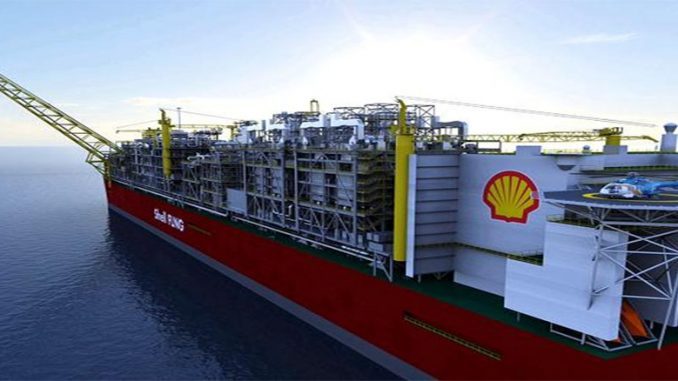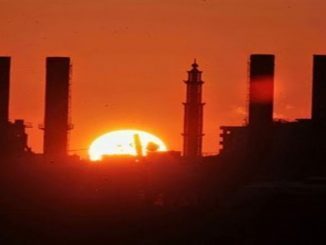
Shell is considering buying gas from the Israeli Leviathan field in the Mediterranean for sale in the Egyptian market, according to media reports.
Royal Dutch Shell is considering buying Israeli gas for sale in Egypt through its Liquefied Natural Gas (LNG) plants, according to media reports.
The British-Dutch energy is said to be in talks to purchase gas from Israel’s controversial Leviathan field in the eastern Mediterranean and pipe it to gas plants in Egypt.
It will combine production from Cyprus’ Aphrodite field to make the Mediterranean region a “major gas-producing hub”, according to Bloomberg.
Leviathan’s partners Noble Energy Inc. and Delek Drilling LP will be looking for funding options to develop the Mediterranean gas field.
Shell is looking at purchasing 5 billion cubic meters of gas a year from the Israel suppliers, the source said.
Noble – which owns a nearly 40 percent stake in the Leviathan field – is said to be in talks to supply gas to LNG plants in Egypt and the local market.
Gas could be piped to Egypt via Shell’s Idku LNG plant on the country’s Mediterranean coast or through Jordan, where protests against Israeli gas deals have broken out.
It highlights the changing dynamics in Egypt, when the country switched from being a net gas exporter in 2014 to an importer.
Egypt’s gas rich Sinai region has been beset with security problems after an insurgency broke out following the 2013 military coup. Repeated attacks have been launched on gas pipelines to Jordan by militants cutting supplies.
Power outages and declining output have also pressured the Egyptian regime – headed by President Abdel Fatah al-Sisi – to use gas for the domestic market.
Israel is meanwhile looking at using its clout as a major energy producer – when the Leviathan begins producing gas in 2019 – to end isolation and bolster political and economic ties with neighbours in the Middle East region.
Israel’s blockade of Gaza’s waters – which Egypt is also backing – is believed by some to be influenced by the discovery of gas in the Mediterranean.
Israeli Prime Minister Binyamin Netanyahu has described the gas find as a “gift from god” and as an energy giant will strengthen the country’s claims to occupied Jerusalem as its capital.
Tel Aviv has blocked Palestinians from exploring gas fields off Gaza’s coast, barred imports by sea to the besieged land strip, while Palestinian fishing boats have been repeatedly fired on by the Israeli navy.
Signs suggest that the eastern Mediterranean countries could be a major energy providers for Europe with huge gas reserves have been discovered off the coasts of Israel, Palestine, Egypt, Cyprus and Lebanon, which could circumvent reliance on Russian gas supplies.



